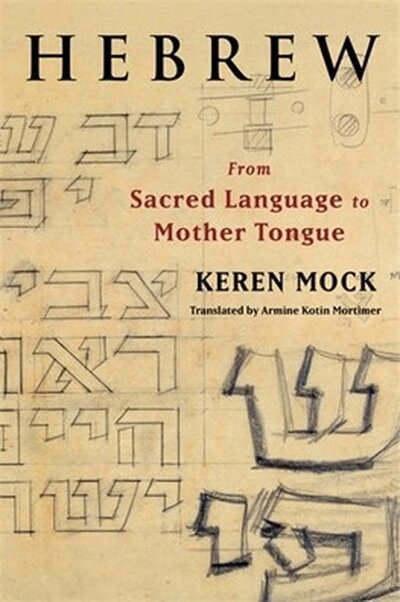
Faculty throughout the School of Literatures, Cultures & Linguistics share their expertise, knowledge, and research in books on a wide variety of topics.
Have a book you'd like us to include? Please email us.

For nearly two thousand years, Hebrew belonged to the realm of the sacred. A written liturgical language used primarily by rabbis and scholars, it was not spoken in everyday contexts. A revival process in the late nineteenth century brought Hebrew back into daily use, adapting sacred texts as the foundations for a new vernacular. A “mother tongue” emerged. "Hebrew: From Sacred Language to Mother Tongue" by Keren Mock—translated by Armine Kotin Mortimer, professor emerita of French—provides a strikingly original multidisciplinary account of this transformation of Hebrew from an ancient sacred tongue to a secular spoken language. Bringing together psychoanalytic, semiotic, and comparative-literature perspectives, Meck provides deep insight into key moments in this history. (Columbia University Press, December 2025)
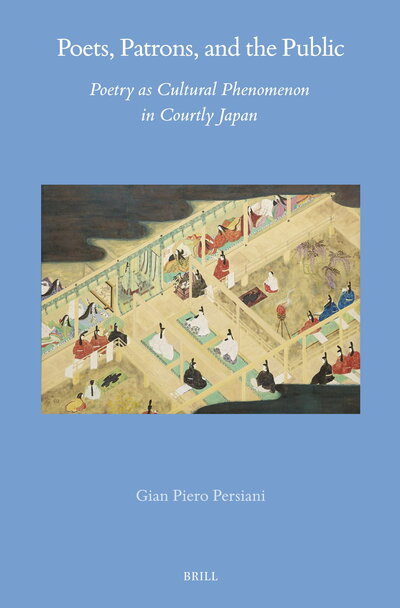
Waka poetry was all the rage in tenth-century, courtly Japan. Every educated person composed it, emperors and consorts sponsored it, and societal interest in it was at an all-time high. East Asian languages and cultures professor Gian Piero Persiani’s book "Poets, Patrons, and the Public: Poetry as Cultural Phenomenon in Courtly Japan" offers an unprecedentedly broad and vivid portrayal of this season of literary flourishing, revealing the multitude of factors that contributed to it, as well as the social, political, and cultural reasons behind waka’s rise. Deftly combining sociological theory and social and intellectual history with insightful readings of a wealth of primary texts—some never before discussed in English—the book is both a history of waka in the Heian period and a study of Heian court society through the lens of waka. (Brill, August 2025)
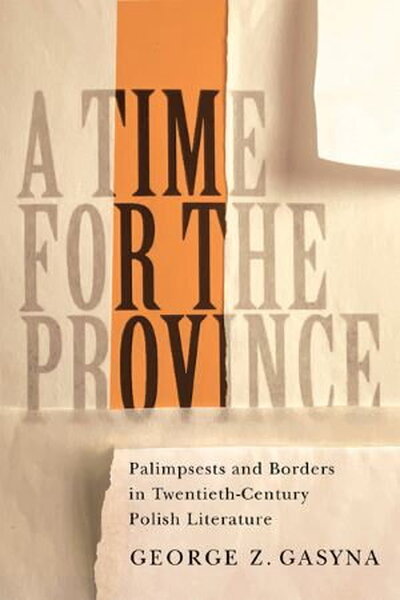
Within discourses on Polish provincial or marginal literature, the eastern borderlands are a richly symbolic region that inspires much fascination and study. Through close readings, surveys, and analyses of transborder narratives by seven modern writers who hailed from the Polish borderlands or set their works there, "A Time for the Province" demonstrates how the region has come to represent a palimpsest of cultural identities and myths as each new generation unearths and rediscovers them. Slavic languages and literatures professor George Gasyna explores and theorizes the province as a space of grand utopian visions and dystopic gestures about both the Polish past and a Polish future. Offering a novel literary and cultural history of modern Polish writing, he paves the way toward productive new modes of conceptualizing the cultural and literary forms that have come from Central Europe over the last century, challenging many basic assumptions about what this literature can offer its readership in Poland and around the world. Through engagement with the theoretical apparatuses of postmemory studies and border studies, A Time for the Province redefines Polish cultural identity in the current moment of postsocialist transition and globalized citizenship. (McGill-Queen's University Press, April 2025)
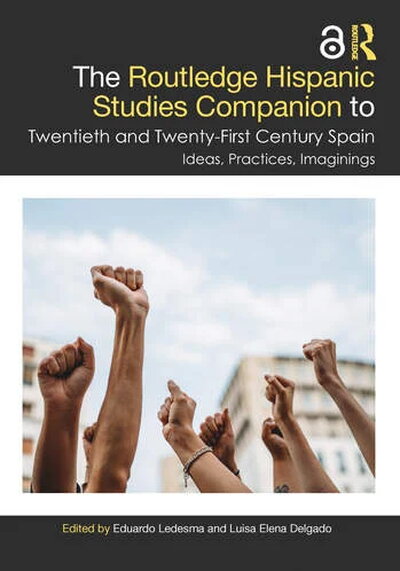
"The Routledge Hispanic Studies Companion to Twentieth and Twenty-First Century Spain," edited by Spanish professor Eduardo Ledesma and Luisa Elena Delgado, who was professor emerita of Spanish, charts the key ideas, practices and imaginings that characterize Spain’s cultural, historical, social and political history in the contemporary period. The volume brings together internationally acknowledged scholars from around the globe and from diverse disciplines, from cinema and sociology, to sociolingusitics, politics and history, as well as various other cultural studies approaches. Offering a nuanced, multi-disciplinary assessment of modern and contemporary Spanish culture through a dichotomic organizing principle, this companion is an expansive resource which will be of interest to students and scholars of Hispanic studies, and those with a particular interest in Spanish history, politics and culture. (Routledge, March 2025)
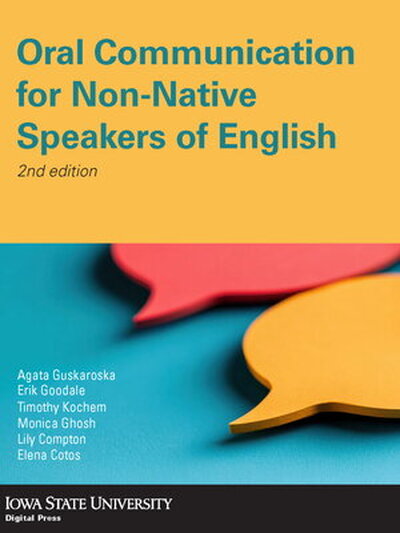
"Oral Communication for Non-Native Speakers of English" (second edition) coauthored by linguistics professor Monica Ghosh is an essential instructional tool for developing oral communication skills in academic settings, specifically designed for international graduate students, teaching assistants, postdoctoral researchers, and those preparing to enter academia. The second edition introduces dedicated chapters on developing effective pronunciation, listening skills and speaking fluency. Through its wide array of interactive H5P activities, suitable for both classroom teaching and individual practice, learners can actively develop the skills needed for success in English-speaking academic environments. (Iowa State University Digital Press, February 2025)
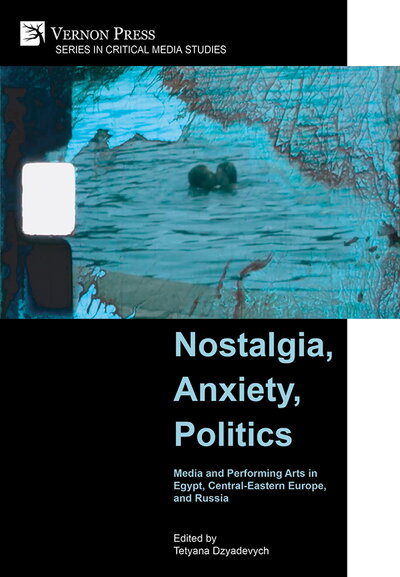
“Nostalgia, Anxiety, Politics: Media and Performing Arts in Egypt, Central-Eastern Europe, and Russia,” edited by Slavic languages and literatures professor Tetyana Dzyadevycz, shows that the cultural production of nostalgia is a major tool for structuring feelings of resentment and anxiety. This volume is concerned with collective nostalgia as it has been elicited, channeled, and weaponized by media production agents. It analyzes how the performing arts and media (music, cinema, TV, etc.) generate and shape the feeling of collective nostalgia. It shows how the cultural production of nostalgia reflects distinct social-political contexts and serves particular political purposes. The collective monograph prioritizes cases from the post-Soviet context. However, the authors do not argue that the collapse of the socialist bloc in general, and the USSR in particular, has established some unique nostalgic precedent. The book claims that mechanisms of producing nostalgia and marshaling it for political purposes are broadly similar in most (modern or postmodern) settings. (Vernon Press, January 2025)
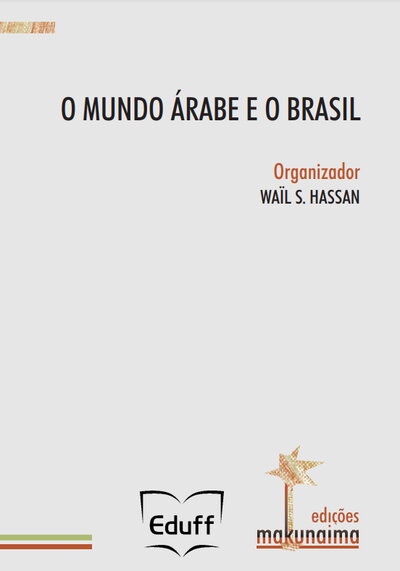
In recent decades, the relations between the Arab world and Brazil have increasingly become the subject of academic study by literary scholars, historians, sociologists, anthropologists, and political scientists based in the Americas, the Arab world, and Europe. On the one hand, this reflects the emergence of Brazil as an important player in newly reconfigured economic and geopolitical networks within the Global South since the end of the military dictatorship and the Cold War. On the other hand, it is also a belated response by the academy to a centuries long relationship between the two regions. "O mundo árabe e o Brasil" by comparative and world literature professor Waïl S. Hassan brings together the latest research on the history of Arabic studies in Brazil, Brazilian foreign policy toward the Middle East, Arab immigration and the Palestinian Diaspora in Brazil, Brazilian Orientalism, literary translation between Arabic and Brazilian Portuguese, and Arab Brazilian literature. (Rio de Janeiro: Edições Makunaima, December 2024)
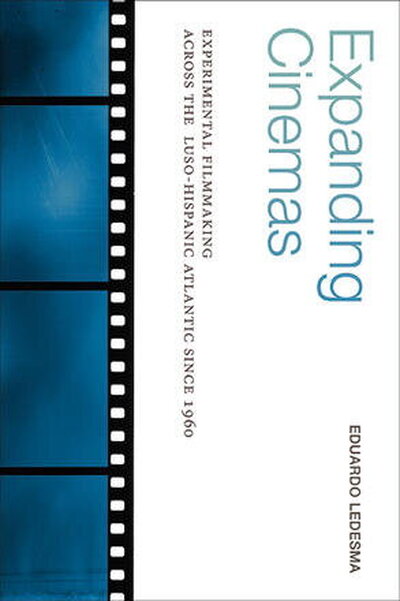
"Expanding Cinemas: Experimental Filmmaking Across the Luso-Hispanic Atlantic Since 1960" by Spanish professor Eduardo Ledesma is the first book on experimental cinemas of Latin American and Spain to offer a comprehensive look at old and new technologies, including Super 8, VHS, cell phones, virtual reality, artificial intelligence, and more. From the militant films of the 1960s to today's expanded reality experiences, filmmakers in Argentina, Spain, Cuba, Colombia, Brazil, and Mexico have continually used alternative formats both to dialogue with international movements and to counter commercial cinematic trends. To make this argument and cover this vast geographic and historical terrain, Eduardo Ledesma adopts a transnational and intermedial approach, examining exchanges and associations between cineastes to better understand how their films were created and circulated. Ledesma works to untangle both the relations between media and the associations of experimental cinema to cultural phenomena such as diaspora, exile, displacement, and immigration. Throughout the book, connections are further made to other global avant-garde and alternative cinemas and formats, including in the United States. (Suny Press, December 2024)
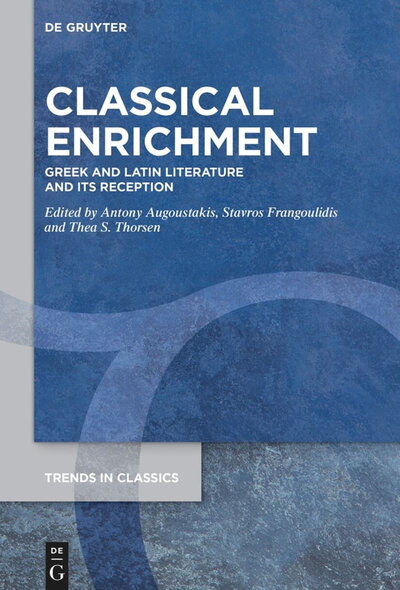
“Classical Enrichment: Greek and Latin Literature and its Reception," a collection of essays edited by classics professor Antony Augoustakis with Stavros Frangoulidis and Thea S. Thorsen, brings together twenty-eight chapters that celebrate both Stephen’s distinguished teaching and research career as a classicist and his outstanding and admirable service to the international classical community. The wide variety of original contributions on topics ranging from Greek to Latin and ancient literature’s reception in opera and contemporary writing is divided into five parts. Each corresponds to the staggering publication record of the honorand, encompassing, as it does, a broad literary spectrum, starting from the literature of the end of the Roman Republic and coming down to Neo-Latin and the reception of Classics in Irish, in English poetry and in European literature and culture in general. (De Gruyter, November 2024)
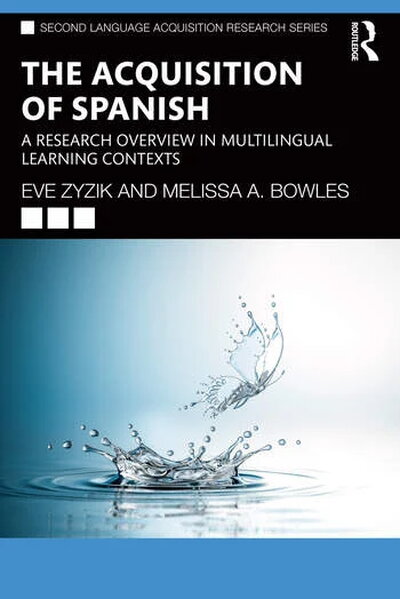
As the first text to present, in one place, a comprehensive and systematic overview of Spanish language acquisition research, "The Acquisition of Spanish: A Research Overview in Multilingual Learning Contexts" by Spanish professor Melissa Bowles, co-edited with Eve Zyzik, discusses a range of theoretical perspectives that outline issues surrounding language learning and the gaps in its research and teaching. Drawing on classic and current empirical studies on learner cohorts at different proficiency stages all over the world, the authors aim to bring bi-/multilingualism to the forefront to provide readers with a deeper conceptual understanding of the challenges faced by different groups of Spanish learners in various learning contexts. (Routledge, November 2024)
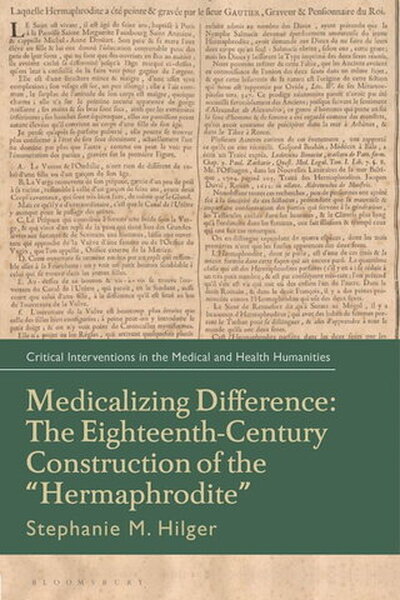
"Medicalizing Difference: The Eighteenth-Century Construction of the "Hermaphrodite" by Germanic languages and literatures professor Stephanie Hilger examines case studies written about Anne Grandjean, Michel Anne Drouart, Maria Dorothea Derrier, and an unnamed “Angolan hermaphrodite.” Multiple case studies were published about each of these individuals and are discussed throughout the book's four chapters, each of which focuses on one momentous epistemological shift in the eighteenth-century: an increasing focus on empiricism and the related professionalization of medicine, the expanding market for popular scientific literature, changing notions about generation and reproduction, and the exploration of foreign territories. This book reads these case histories against the grain and historicizes 18th-century medicine's construction of the category of the “hermaphrodite,” demonstrating that, rather than describing a fact, these histories created their subject of study. (Bloomsbury, November 2024)
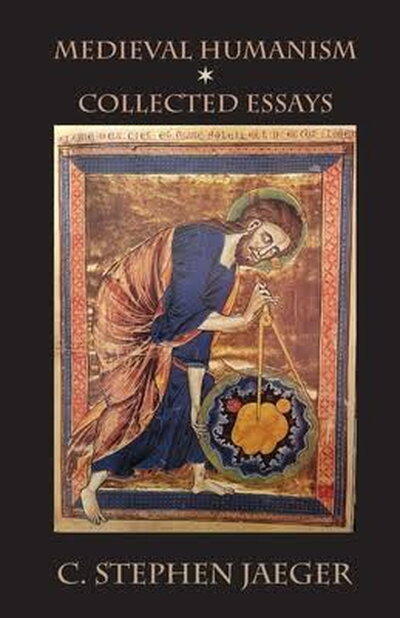
The worldly culture of northern Europe in the two centuries between the end of the Carolingian Empire and the “renaissance of the twelfth century” is, in the words of Claudio Leonardi, an “age without a name.” The difficulty of naming the period might be a lack of coherence among its parts and, at the same time, a lack of conceptual apparatus for formulating a synthesis. In "Medieval Humanism: Collected Essays," professor emeritus of comparative and world literature and Germanic languages and literatures C. Stephen Jaeger argues that such a synthesis of culture from 950 to 1150 emerges from the humanism of the early cathedral schools that proliferated from the second half of the tenth century and from the educational innovations closely tied to the rule of Emperor Otto I, the Great. Its thought and teaching takes its character from the fusion of ancient Roman philosophy and ethical ideals with Christian teachings. Its influence in church and imperial administration is as profound as it is in philosophy, literary style, and social mores. A humanist educated class emerges from these schools that reaches deep into clerical, monastic, and worldly spheres. (Italica Press, Inc., October 2024)
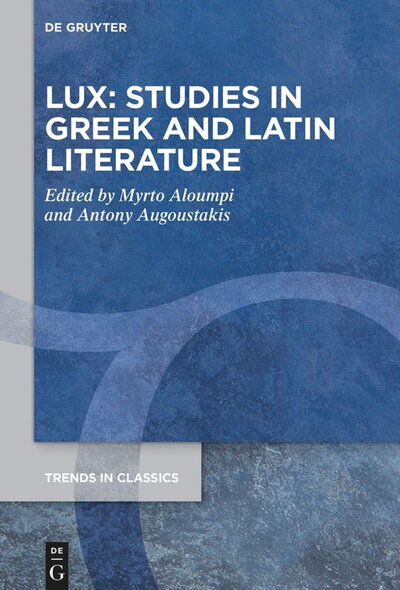
“Lux: Studies in Greek and Latin Literature," a volume of essays by classics professor Antony Augoustakis, co-edited with Myrto Aloumpi (University of Crete) in honor of Lucia Athanassaki, offers a great variety of chapters on many topics in Greek and Latin literature in a wide-ranging number of authors and genres, including Greek epic and lyric poetry, from Homer to Pindar and the lyric poets, Greek drama of the classical period, Greek historiography and biography, late antique literature, and Latin lyric poetry. In addition, a variety of approaches characterizes the contributions to this volume from the theoretical to the philological. (De Gruyter, October 2024)
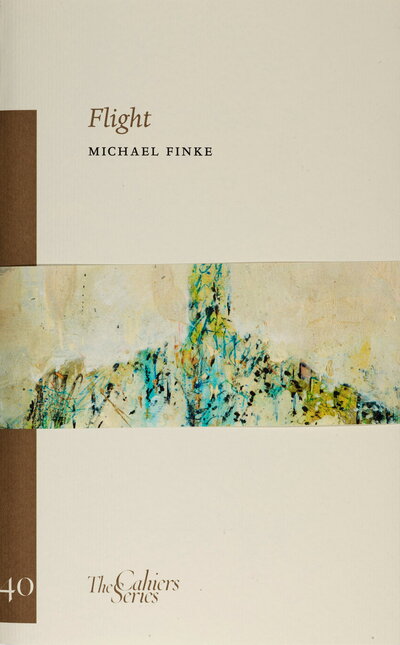
Deskbound and myopic, ever since his childhood, author Michael Finke, an emeritus professor in the Department of Slavic Languages & Literatures, has dreamt of flight. After decades as a university professor whose secret vice was to spend weekends soaring in light planes and gliders, he came across little-studied writings of leading Russian authors of the 1920s who, at the direction of Soviet authorities, engaged aviation as a signal promise of progress in Bolshevik Russia, another dream asking to be translated into reality. The resulting small-form book "Flights" allows the literary scholar to meet the flier in an exploration of the sources and meanings of the several dreams inspired by flight. Placed alongside the text are paintings by the British artist Rachael Plummer, paintings which have their own oneiric quality, as airplanes disintegrate into abstraction and as the offer of an aerial perspective renders landscape almost–but in the end not quite–legible. (Sylph Editions, October 2024)
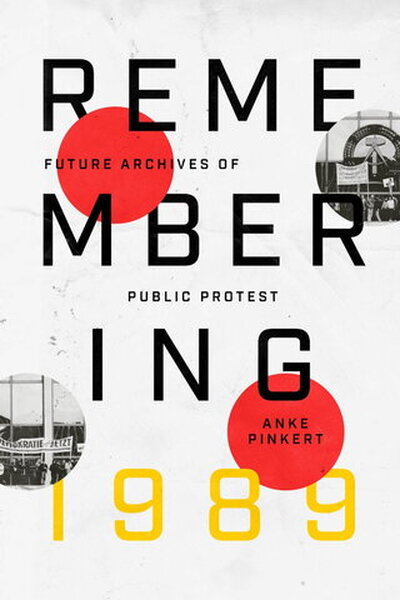
For many, 1989 is an iconic date, one we associate with the fall of the Berlin Wall and the end of the Cold War. The year prompts some to rue the defeat of socialism in the East, while others celebrate a victory for democracy and capitalism in the reunified Germany. "Remembering 1989" focuses on a largely forgotten interregnum: the months between the outbreak of protests in the German Democratic Republic in 1989 and its absorption by the West in 1990. Germanic languages and literatures professor Anke Pinkert, who herself participated in those protests, recalls these months as a volatile but joyous “laboratory of radical democracy,” and tells the story of how and why this “time out of joint” has been erased from Germany’s national memory. (The University of Chicago Press, October 2024)
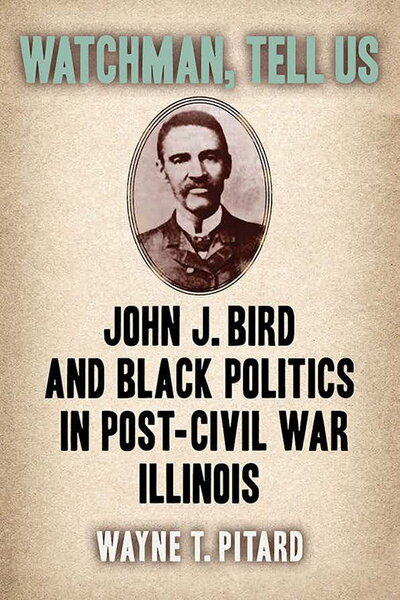
A key biography of John J. Bird, “Watchman, Tell Us: John J. Bird and Black Politics in Post-Civil War Illinois” by Wayne Pitard, an emeritus professor of religion, unveils the forgotten story of a remarkable Black political figure in post-Civil War Illinois. Emerging as a leader in Cairo, the city with Illinois’ second-largest Black community, Bird played a pivotal role in advancing civil rights within the state, also becoming Illinois’ first Black elected judge and first Black trustee of the University of Illinois. "Watchman, Tell Us" deftly examines Bird’s lifetime of service and advocacy for a vulnerable community and the ways in which he successfully advocated for and protected voting rights, educational opportunity, and public access for the Black residents of southern Illinois. (Southern Illinois University Press, September 2024)
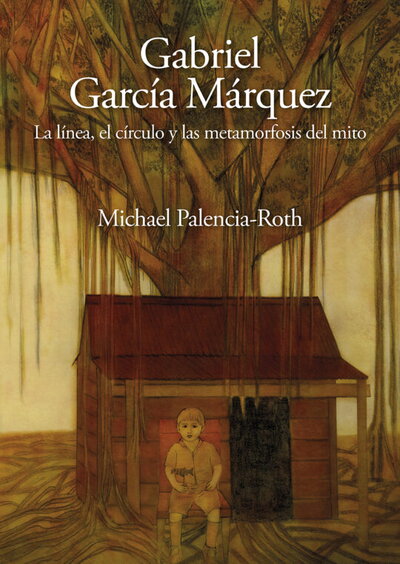
“Gabriel García Márquez: La línea, el círculo y las metamorfosis del mito" by comparative and world literature professor Michael Palencia-Roth is described as, "Without a doubt the most important and robust theoretical reflection on One Hundred Years of Solitude and The Autumn of the Patriarch, considered the most significant novels written by Gabriel García Márquez. However, this is much more than a critical study of two masterful novels; the attentive reader will find in this book a different type of perspective and an enriching theoretical framework to think about ... world literature in general.” (Sílaba Editores, August 2024)
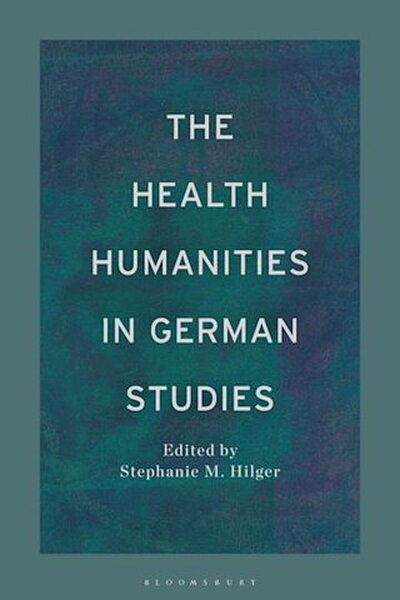
The first full-length study to bring together the fields of Health Humanities and German studies, "The Health Humanities in German Studies," edited by Stephanie Hilger, professor of German and comparative literature, features contributions from a range of key scholars and provides an overview of the latest work being done at the intersection of these two disciplines. In addition to surveying the current critical terrain in unparalleled depth, it also explores future directions that these fields may take. Organized around seven sections representing key areas of focus for both disciplines, this book provides important new insights into the intersections between Health Humanities, German Studies, and other fields of inquiry that have been gaining prominence over the past decade in academic and public discourse. In their contributions, the authors engage with disability studies, critical race studies, gender/embodiment studies, trauma studies, as well as animal/environmental studies. (Bloomsbury, June 2024)
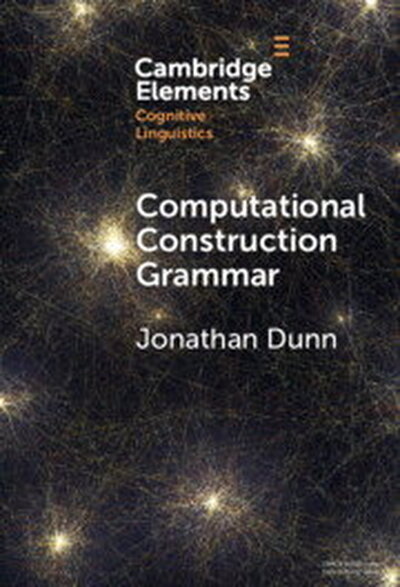
"Computational Construction Grammar" by linguistics professor Jonathan Dunn introduces a usage-based computational approach to construction grammar that draws on techniques from natural language processing and unsupervised machine learning. This work explores how to represent constructions, how to learn constructions from a corpus, and how to arrange the constructions in a grammar as a network. From a theoretical perspective, this element examines how construction grammars emerge from usage alone as complex systems, with slot-constraints learned at the same time that constructions are learned. From a practical perspective, this work is accompanied by a Python package which enables linguists to incorporate construction grammars into their own corpus-based work. The computational experiments in this element are important for testing the learnability, variability, and confirmability of construction grammar as a theory of language. (Cambridge University Press, May 2024)
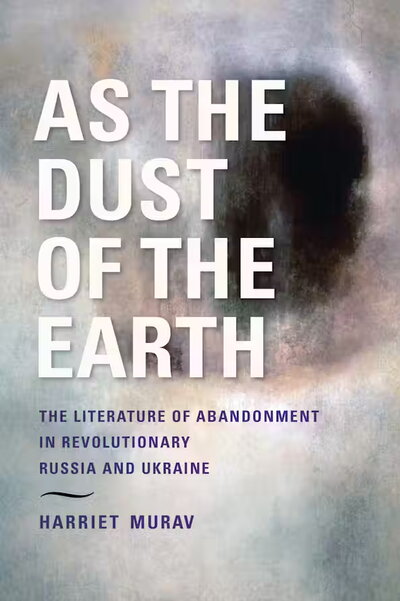
An estimated forty thousand Jews were murdered during the Russian Civil War between 1918 and 1922. "As the Dust of the Earth" by Slavic languages and literatures and comparative and world literature professor Harriet Murav examines the Yiddish and Russian literary response to the violence (pogroms) and the relief effort, exploring both the poetry of catastrophe and the documentation of catastrophe and care. Brilliantly weaving together narrative fiction, poetry, memoirs, newspaper articles, and documentary, Murav argues that poets and pogrom investigators were doing more than recording the facts of violence and expressing emotions in response to it. They were interrogating what was taking place through a central concept familiar from their everyday lifeworld—hefker, or abandonment. Focusing less on the perpetrators and more on the responses to the pogroms, "As the Dust of the Earth" offers a fuller understanding of the seismic effects of such organized violence and a moving testimony to the resilience of survivors to process and cope with catastrophe. (Indiana University Press, April 2024)
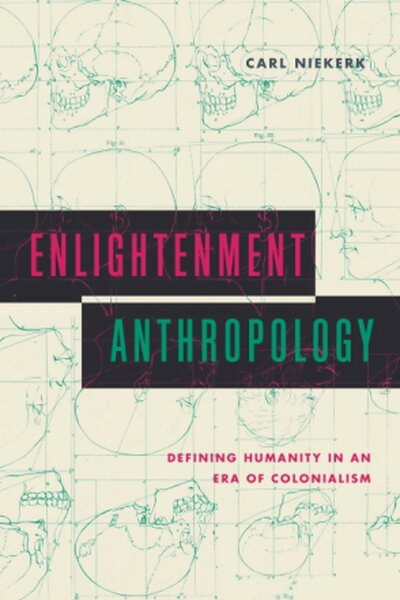
In his book "Enlightenment Anthropology: Defining Humanity in an Era of Colonialism," Germanic languages and literatures professor Carl Niekerk probes the origins of modern anthropology in the European Enlightenment, foregrounding how the knowledge transfer between an international array of natural historians and public intellectuals—including Georges-Louis Leclerc, Comte de Buffon; Voltaire; Denis Diderot; Johann Friedrich Blumenbach; Immanuel Kant; and Johann Gottfried Herder—shaped the emerging discipline and its central debates. Reexamining how these many voices crossed paths and diverged, Niekerk sharpens our understanding of how anthropology, as we know it today, came to be. With an emphasis on how we can use the ambiguities and deficiencies of the past to help guide our thinking and actions today, this book will appeal to a widely interdisciplinary audience, including anthropologists, historians and philosophers of science, intellectual historians, Germanists, and scholars of the European Enlightenment. (Penn State University Press, April 2024)
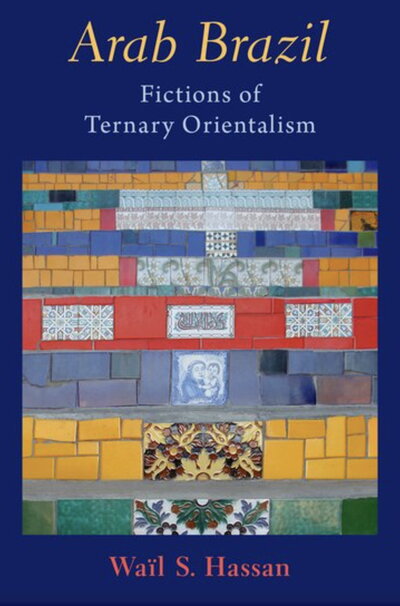
Arab-Brazilian relations have been largely invisible to comparative literature scholarship. In his new book, "Arab Brazil: Fictions of Ternary Orientalism," Waïl S. Hassan, a professor in the Department of Comparative & World Literature, traces the representation of Arabs and Islam in a century of Brazilian literature and popular culture, from the early 1920 to the present, including comparative readings of the uses that Brazilian and Arab Brazilian writers have made of pre-Islamic poetry, the Qur’an, The Book of a Thousand and One Nights, the legacy of al-Andalus, and the writings of Khalil Gibran. Hassan argues that the representation of Arab and Muslim immigrants in Brazil reveals anxieties and contradictions in the country's ideologies of national identity, showing how the Arab East works paradoxically as a site of otherness (different language, culture, and religion) and solidarity (cultural, historical, demographic, and geopolitical ties). Hassan explores the differences between colonial Orientalism's binary structure of Self/Other, East/West, and colonizer/colonized, on the one hand; and on the other hand Brazilian Orientalism's ternary structure, which defines the country's identity in relation to both North and East. (Oxford University Press, March 2024)
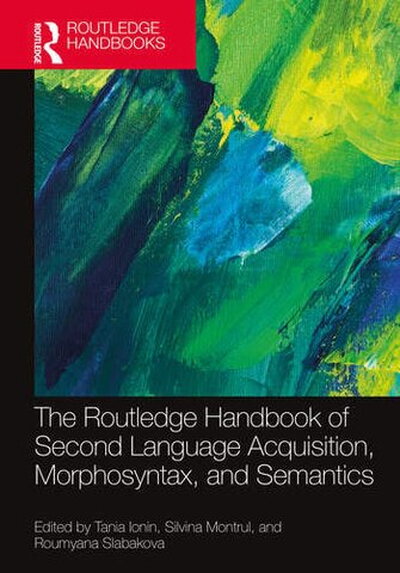
"The Routledge Handbook of Second Language Acquisition, Morphosyntax, and Semantics," edited by Spanish and linguistics professors Tania Ionin and Silvina Montrul alongside Roumyana Slabakova, provides innovative and comprehensive coverage of research on the second language acquisition (SLA) of morphosyntax, semantics, and the interface between the two. The volume will be indispensable to SLA researchers and students who work on any aspect of the SLA of morphosyntax or semantics. With its coverage of a variety of methodologies and comparisons to other populations (such as child language acquirers, early bilinguals, heritage speakers, and monolingual adults), the handbook is expected to also be of much interest to linguists who work in psycholinguistics, first language acquisition, and bilingualism. (Routledge, March 2024)
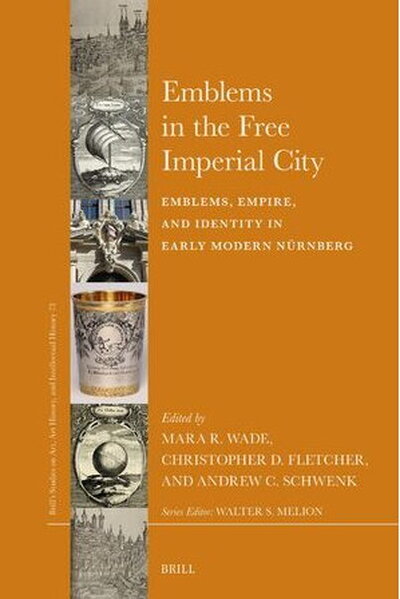
Civic virtues were central to early modern Nürnberg’s visual culture. These essays in this volume (edited by professor emerita Mara Wade and graduate student Andrew Schwenk from the Department of Germanic Languages & Literatures, with Christopher Fletcher) explore Nürnberg as a location from which to study the intersection of art and power. The imperial city was awash in emblems, and they informed most aspects of everyday life. The intent of this collection, titled "Emblems, Empire, and Identity in Early Modern Nürnberg" is to focus new attention on the town hall emblems, while simultaneously expanding the purview of emblem studies, moving from strict iconological approaches to collaborations across methodologies and disciplines. (Brill, March 2024)
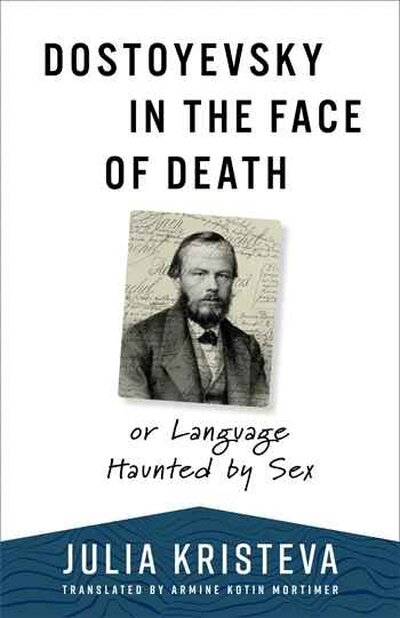
Armine Kotin Mortimer, professor emerita of French literature, has published a translation of Julia Kristeva’s “Dostoyevsky in the Face of Death or Language Haunted by Sex." In this extraordinary book, by turns poetic and intensely personal, Kristeva brings her unique critical sensibility to bear on the tormented and visionary Russian author Dostoyevsky. Kristeva ranges widely across Dostoyevsky’s novels and his journalism, plunging deep into the great works—and many of the smaller ones—to investigate her fascination with the Russian author. What emerges is a luminous vision of the writer’s achievements, seen in a wholly new way through Kristeva’s distinctive perspective on language. An original and profound interpretation of one of the nineteenth century’s greatest writers, this book’s insights are also relevant to the twentieth and twenty-first centuries—up to our unsettled present, to which Kristeva’s humane reading of the suffering Russian author brings understanding and even solace. (Columbia University Press, December 2023)
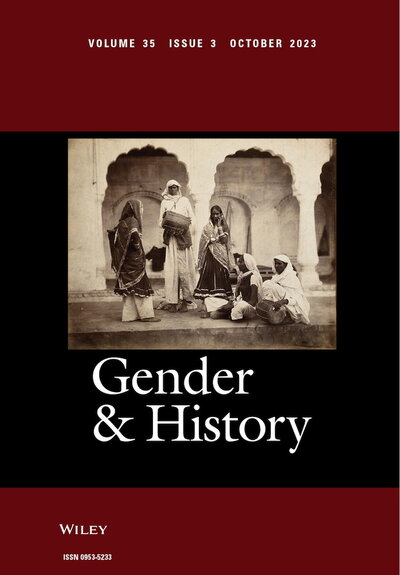
“Writing Trans Histories with an Ethics of Care, while Reading Gender in Imperial Roman Literature" by classics graduate student Ky Merkley has been published in a special issue of the journal Gender and History. Two major barriers interfere with writing trans histories of the premodern world: the conflict between creating a legible or foreignised past and balancing the vastness of the social system of gender against individual performances of gender identity. In this article, Merkley proposes one methodology to bypass these barriers. Additionally, this methodology reminds us that both gender and history are systems which we use to generate narratives about ourselves and that these narratives always care for and nourish certain people. Here, Merkley issues a call for trans historians to unabashedly write histories that care for and nourish trans lives. (Gender & History journal, November 2023)
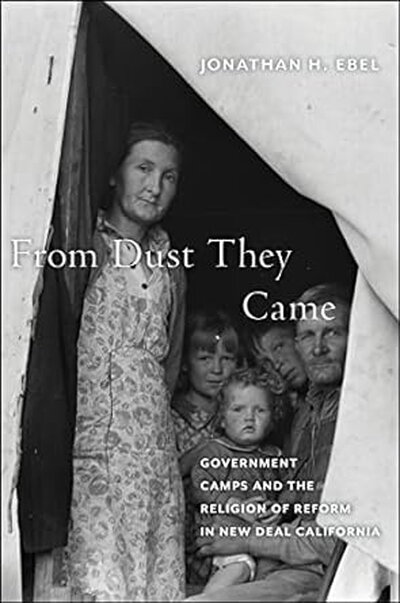
In the midst of the Great Depression, punished by crippling drought and deepening poverty, hundreds of thousands of families left the Great Plains and the Southwest to look for work in California’s rich agricultural valleys. In response to the scene of destitute white families living in filthy shelters built of cardboard, twigs, and refuse, reform-minded New Deal officials built a series of camps to provide them with shelter and community. Using the extensive archives of the federal migratory camp system, "From Dust They Came: Government Camps and the Religion of Reform in New Deal California" tells the story of the religious dynamics in and around migratory farm labor camps in agricultural California established and operated by the Resettlement Administration and the Farm Security Administration. Jonathan Ebel, professor of religion, makes the case that the camps served as mission sites for the conversion of migrants to more modern ways of living and believing. (New York University Press, October 2023)
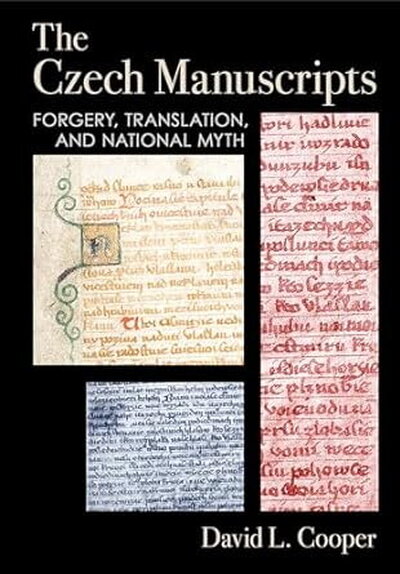
"The Czech Manuscripts: Forgery, Translation, and National Myth" by David Cooper, professor of Slavic Languages & Literatures, is dedicated to one of the most important literary forgeries on the model of Macpherson's Ossianic poetry. The Queen's Court and Green Mountain Manuscripts, discovered in 1817 and 1818, went on to play an outsized role in the Czech National Revival, functioning as founding texts of the national mythology and serving as sacred works in the long period when they were considered genuine. Cooper analyzes what made the Manuscripts a convincing imitation of their Serbian and Russian models. He looks at how translation shaped their composition and investigates the quasi-religious rituals and commemorative practices that developed around them. (Cornell University Press, October 2023)
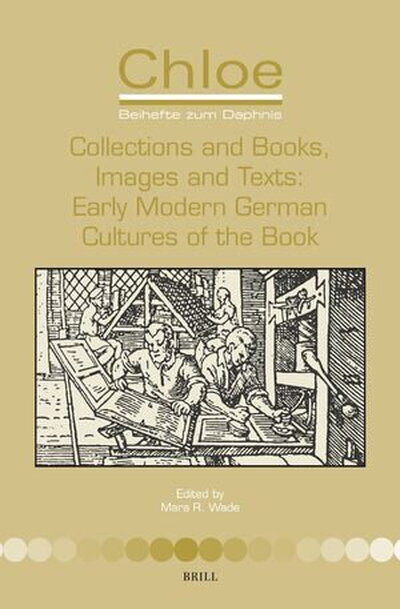
How did German composers brand their music as Venetian? How did the Other fare in other languages, when Cabeza’s Relación of colonial Americas appeared in translations? How did Altdorf emblems travel to colonial America and Sweden? What does Virtue look like in a library collection? And what was Boccaccio’s Decameron doing in the Ethica section? From representations of Sophie Charlotte, the first queen in Prussia, to the Ottoman Turks, from German wedding music to Till Eulenspiegel, from the translation of Horatian Odes and encyclopedias of heraldry, these essays by leading scholars explore the transmission, translation, and organization of knowledge in early modern Germany, contributing sophisticated insights to the history of the early modern book and its contents. The volume, titled "Collections and Books, Images and Texts: Early Modern German Cultures of the Book," was edited by Mara Wade, a professor emerita in the Department of Germanic Languages & Literatures. (Brill, September 2023)
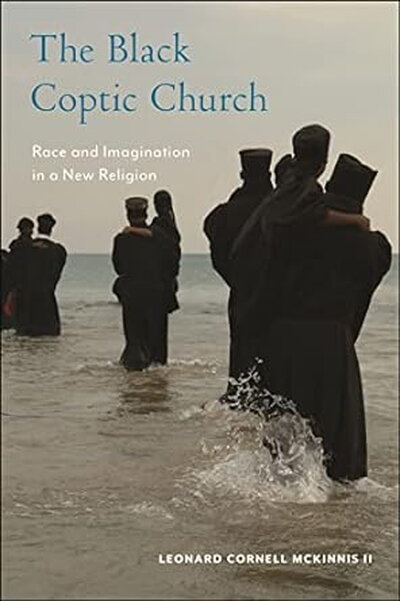
“The Black Coptic Church: Race and Imagination in a New Religion,” by Leonard Cornell McKinnis II, professor of religion and African American studies, provides an illuminating look at the diverse world of Black religious life in North America, focusing particularly outside of mainstream Christian churches. Drawing on more than ten years of ethnographic research, "The Black Coptic Church" engages lived religion through the spiritual lives of Black Coptic followers as they assert a way of being Black that they describe as “divine.” This embrace of a royal blackness illuminates how the Black Coptic tradition in Chicago uniquely employs religio-performative imagination, with a rigorous agenda to conjure an otherwise Blackness. (New York University Press, July 2023)
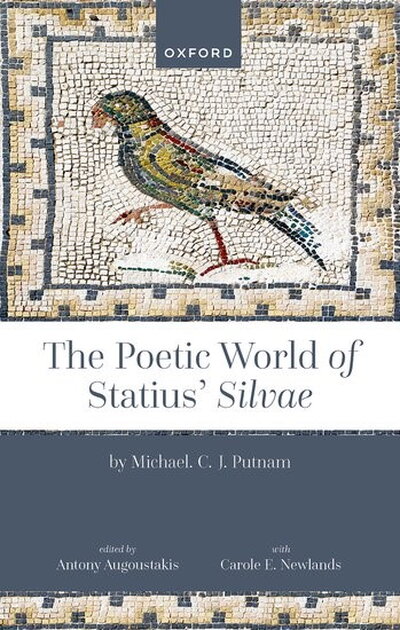
"The Poetic World of Statius' Silvae," co-edited by Antony Augoustakis, professor of classics, with Carole Newlands, a professor at the University of Colorado Boulder, offers a literary analysis of intertextual engagement with Virgil's poetry; provides valuable insight into the cultural and social identity of late first-century imperial Rome; and displays the pioneering nature of Statius' Silvae in the development of ecphrasis as an important social and literary mode in Roman poetry. (Oxford University Press, June 2023)
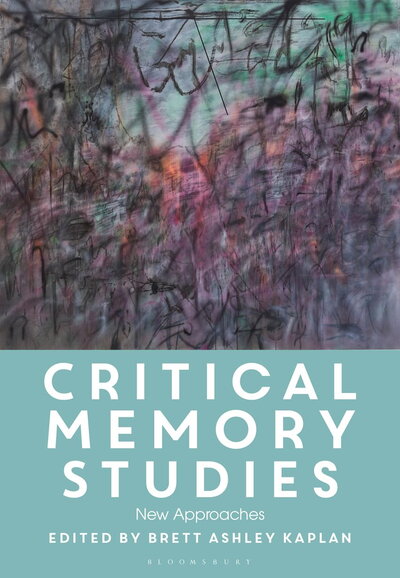
Bringing together a diverse array of new and established scholars and creative writers in the rapidly expanding field of memory studies, "Critical Memory Studies: New Approaches," edited by comparative and world literature professor Brett Ashley Kaplan, creatively delves into the multiple aspects of this wide-ranging field. Contributors explore race-ing memory; environmental studies and memory; digital memory; monuments, memorials, and museums; and memory and trauma. Organized around seven sections, this book examines memory in a global context, from Kashmir and Chile to the US and UK. Featuring contributions on topics such as the Black Lives Matter movement; the AIDS crisis; and memory and the anthropocene, this book traces and consolidates the field while analyzing and charting some of the most current and cutting-edge work, as well as new directions that could be taken. (Bloomsbury, May 2023)
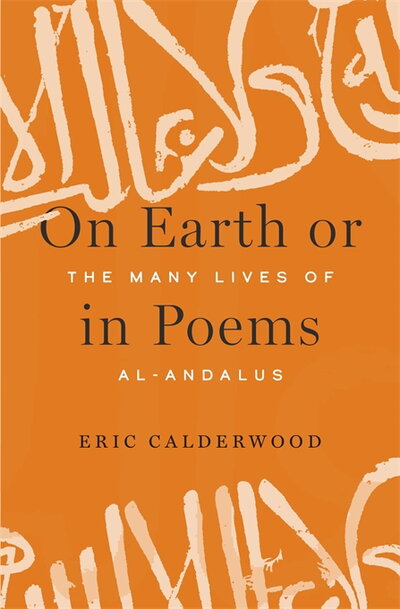
During the Middle Ages, the Iberian Peninsula was home not to Spain and Portugal but to al-Andalus. Ruled by a succession of Islamic dynasties, al-Andalus came to be a shorthand for a legendary place where people from the Middle East, North Africa, and Europe lived together in peace. That reputation is not entirely deserved, yet, as "On Earth or in Poems: The Many Lives of al-Andalus" by Eric Calderwood, professor of Spanish and comparative and world literature, shows, it has had an enduring hold on the imagination, especially for Arab and Muslim artists and thinkers in Europe, the Middle East, and North Africa. In this book, Calderwood traces the role of al-Andalus in music and in debates about Arab and Berber identities, Arab and Muslim feminisms, the politics of Palestine and Israel, and immigration and multiculturalism in Europe. (Harvard University Press, May 2023)
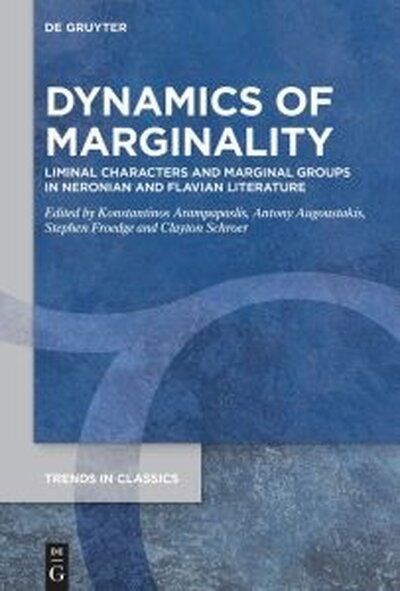
"Dynamics of Marginality: Liminal Characters and Marginal Groups in Neronian and Flavian Literature," co-edited by classics alumni Konstantinos Arampapaslis, Stephen Froedge, and Clayton Schroer and Antony Augoustakis, professor of classics, explores the theme of marginality in the literature and history of the Neronian and Flavian periods. (De Gruyter, April 2023)
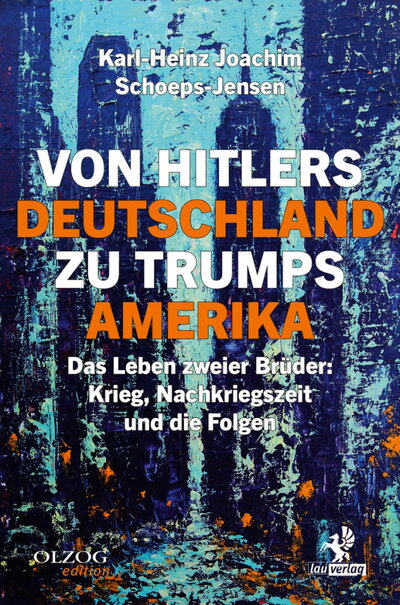
"Von Hitlers Deutschland zu Trumps Amerika" by Karl-Heinz Schoeps-Jensen, professor emeritus of Germanic Languages & Literatures, is an autobiographical reminiscence about two brothers, the twentieth century, and the legacies of fascism and of war. Hans-Günther Schoeps died aged 24 during World War II, and his younger brother Karl-Heinz (the author) moved to the United States. What seemed like two very different paths reveal strange affinities in the early 21st century: Ukraine, where Karl-Heinz's brother lost his life, is again war-torn, and fascist tendencies threaten democracy in the U.S. and elsewhere. (Lau Verlag, April 2023)
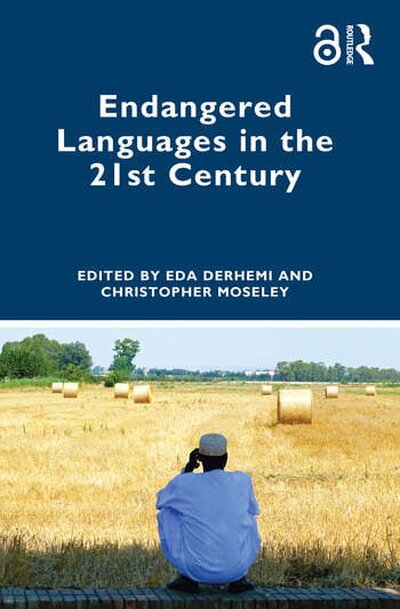
"Endangered Languages in the 21st Century" by French professor Eda Derhemi provides research on endangered languages in the contemporary world, the challenges still to be faced, the work still to be done, and the methods and practices that have come to characterize efforts to revive and maintain disadvantaged indigenous languages around the world. With contributions from scholars across the field, the book brings fresh data and insights to this imperative, but still relatively young, field of linguistics. While the studies acknowledge the threat of losing languages in an unprecedented way, they focus on cases that show resilience and explore paths to sustainable progress. The articles are also intended as a celebration of the 25 years’ work of the Foundation for Endangered Languages, and as a parting gift to FEL’s founder and quarter-century chair, Nick Ostler. (Routledge, February 2023)
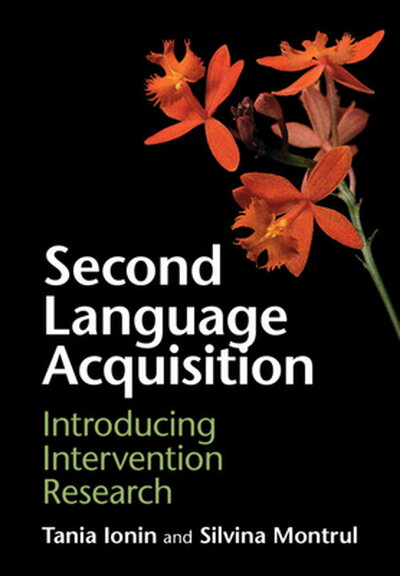
Based on classic and cutting edge-research, "Second Language Acquisition: Introducing Intervention Research" by Tania Ionin, professor of linguistics, and Silvina Montrul, professor of Spanish and linguistics, shows how grammatical phenomena can best be taught to second language and bilingual learners. Bringing together second language research, linguistics, pedagogical grammar, and language teaching, it demonstrates how linguistic theory and second language acquisition findings optimize classroom intervention research. (Cambridge University Press, January 2023)
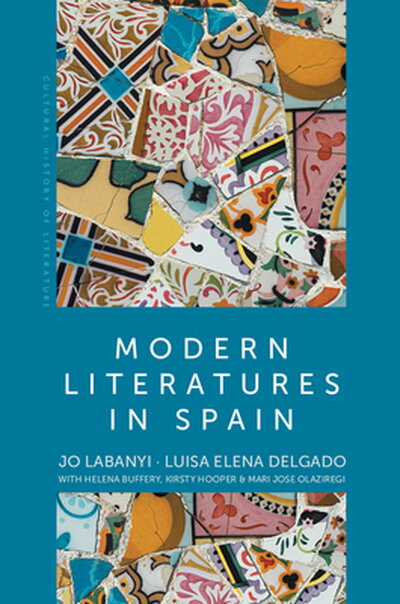
"Cultural History of Modern Literatures in Spain" by Jo Labanyi and Luisa Elena Delgado, professor of Spanish, provides the first cultural history of modern literatures in Spain. With contributors Helena Buffery, Kirsty Hooper and Mari Jose Olaziregi, they showcase the country's cultural complexity by working across its four major literary cultures - Castilian, Catalan, Galician and Basque - from the eighteenth century to the present. An introduction to major historical debates as well as an original analysis of key texts, this book is important reading for students and scholars with an interest in the literatures and cultures of Spain. (Polity Press, January 2023)
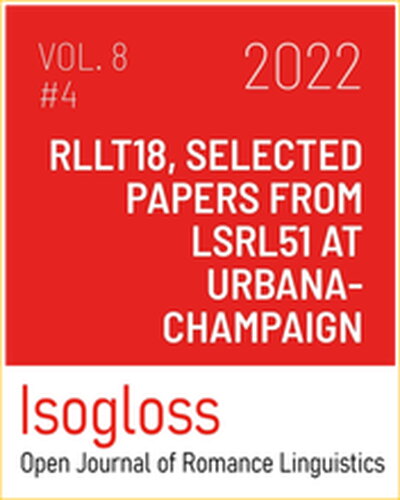
This published volume of 14 peer-reviewed papers from the 51st Linguistic Symposium on Romance Languages by the Open Journal of Romance Linguistics journal, Isogloss: ("Isogloss: Open Journal of Romance Linguistics, Volume 8, No. 4") is the final result of three years of collaborative work between scholars from Spanish, French, and linguistics. The editors of the volume are Jonathan Macdonald (Spanish and linguistics), Ander Beristain (PhD, Hispanic linguistics), Robin Turner (PhD student in French linguistics), and Zsuzsanna Fagyal (French & Italian). Among the international collaborators, five are current or former faculty and graduate students in SLCL. (Universitat Autònoma de Barcelona, 2022)
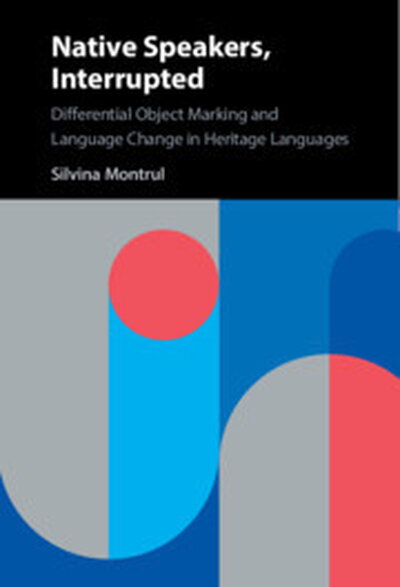
"Native Speakers, Interrupted: Differential Object Marking and Language Change in Heritage Languages" by Spanish & Portuguese and linguistics professor Silvina Montrul brings together three heritage languages -- Hindu, Spanish, and Romanian -- spoken in the U.S. and demonstrates how heritage speakers drive morphosyntactic change when certain environmental characteristics are met. This book is essential reading for students and researchers of linguistics and multilingualism, immigration, education studies and language policy, as well as educators and policy makers. (Cambridge University Press, December 2022)
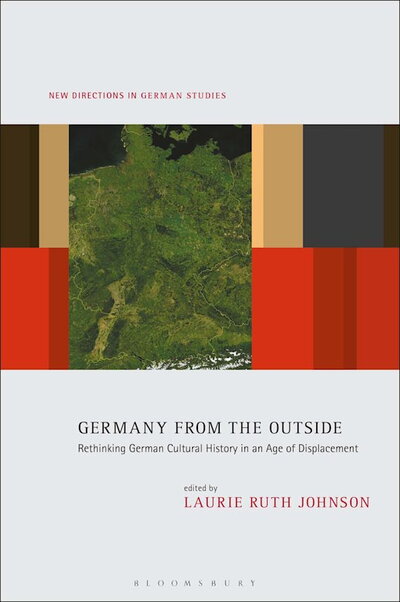
The nation-state is a European invention of the 18th and 19th centuries. In the case of the German nation in particular, this invention was tied closely to the idea of a homogeneous German culture with a strong normative function. As a consequence, histories of German culture and literature often are told from the inside. But what happens if we describe German culture and its history from the outside? Emphasizing current issues of migration, displacement, systemic injustice, and belonging, Germany from the Outside by Laurie Johnson, professor of Germanic Languages & Literatures, explores new opportunities for understanding and shaping community at a time when many are questioning the ability of cultural practices to effect structural change. (Bloomsbury, October 2022)
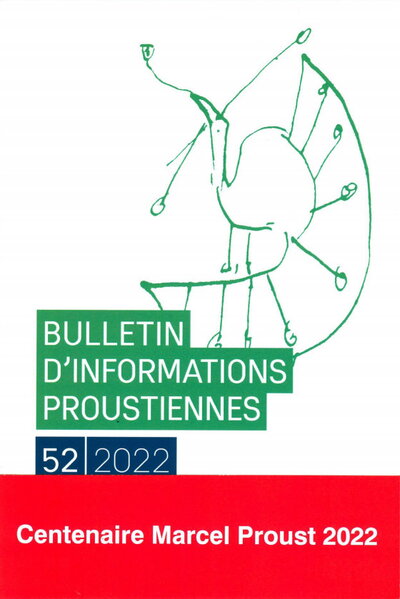
French and Italian professors François Proulx and Caroline Szylowicz (curator of rare books and manuscripts, Rare Book & Manuscript Library) published Bulletin d'informations proustiennes 52, the first comprehensive inventory of Marcel Proust’s drawings to the composer Reynaldo Hahn, documenting over 180 sketches Proulx and Szylowicz also contributed entries to the catalogue for Proust, la fabrique de l’oeuvre, a major exhibition organized by the Bibliothèque nationale de France. (Presses de l'Ecole normale supérieure, October 2022)
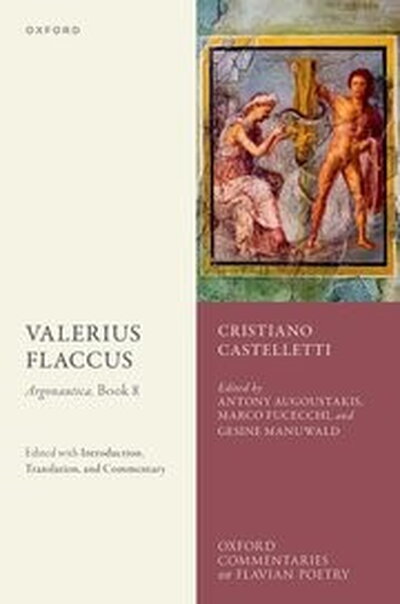
Classics professor Antony Augoustakis has edited a commentary on the eighth and final book of Valerius Flaccus' Flavian epic Argonautica together with professors Marco Fucecchi (University of Udine, Italy) and Gesine Manuwald (University College London, United Kingdom). The edition benefits from his wide-ranging knowledge of ancient poetry and provides perceptive insights into the texture of this important book on Medea’s departure from her home to follow Jason to Greece. (Oxford University Press, September 2022)
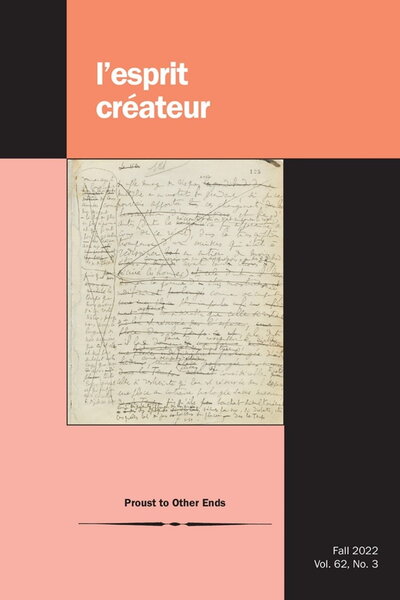
For the centenary of French novelist Marcel Proust’s death (November 18, 1922), French and Italian professor François Proulx co-edited a special issue of L’Esprit Créateur on “Proust to Other Ends” with Hannah Freed-Thall (NYU), featuring articles by leading scholars from France, the U.S. and Japan. Exploring all periods of French literature and thought, L'esprit créateur has been analyzing and documenting contemporary French and Francophone Studies for half a century. Contributors represent a variety of methodologies and critical approaches, and address literature, film, criticism, and culture. (Johns Hopkins University Press, September 2022)
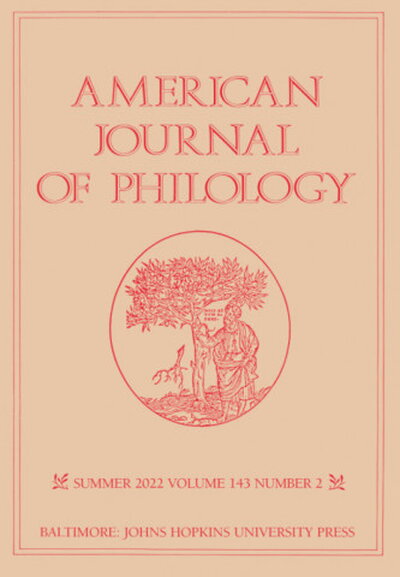
“The Latin Language and Native Survivance in North America" by classics professor Craig Williams, has been published in a special issue of American Journal of Philology dedicated to the topic of “Diversifying Classical Philology.” In his article, Williams discusses texts from the 17th century to today in which Native North American writers reflect on or make use of Latin, marker of a European antiquity which has played a distinct role in colonizing processes on a continent which has its own still-living antiquity. (Johns Hopkins University Press, August 2022)
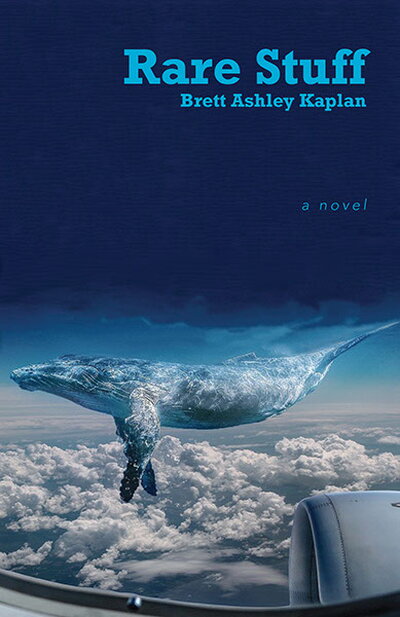
"Rare Stuff," the debut novel of Brett Ashley Kaplan, a professor of comparative and world literature and the director of the Initiative in Holocaust, Genocide, and Memory Studies, tells the story of a daughter’s search for answers about her mother’s disappearance, as well as a magical realism tale of Yiddish-speaking whales trying to save the planet. Kaplan is donating the proceeds of the novel to Whale and Dolphin Conservation. (Spuyten Duyvil, August 2022)
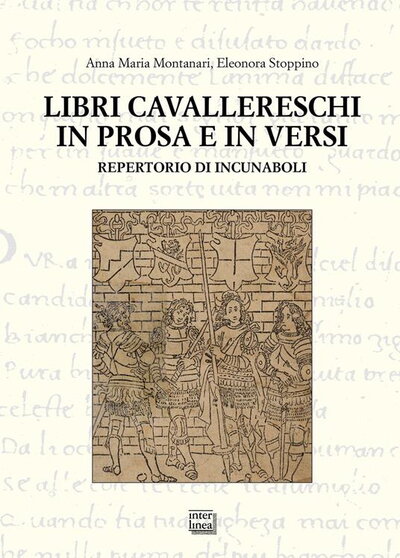
"Libri cavallereschi in prosa e in versi: Repertorio di incunaboli" by French & Italian professor Eleonora Stoppino catalogues all chivalric incunables (books printed before 1501) published in Italy, tracing their bibliographic and scholarly history. The volume contributes to the study of the complex epic universe that characterized Italian and European cultures, giving rise to the masterpieces of Boiardo, Pulci and Ariosto in the sixteenth century. The book, which brings together archival research and digital technologies, aims to be the ultimate resource on chivalric matter printed in Italy up to the year 1500. (Interlinea Press, Italy, July 2022)
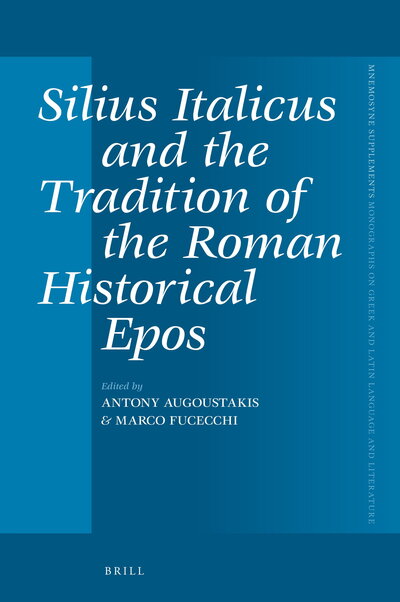
In this collection of essays, classics professor Antony Augoustakis, in collaboration with Marco Fucecchi of the University of Udine, Italy, study Silius’ poem as an important step in the development of the Roman historical epic tradition. The Punica is analyzed as a transitional segment between the beginnings of Roman literature in the Republican age and Claudian’s panegyrical epic in late antiquity, shedding light on its ‘inclusiveness’ and its peculiar, internal dialectic between antiquarian taste and problematic actualization. (Brill, July 2022)
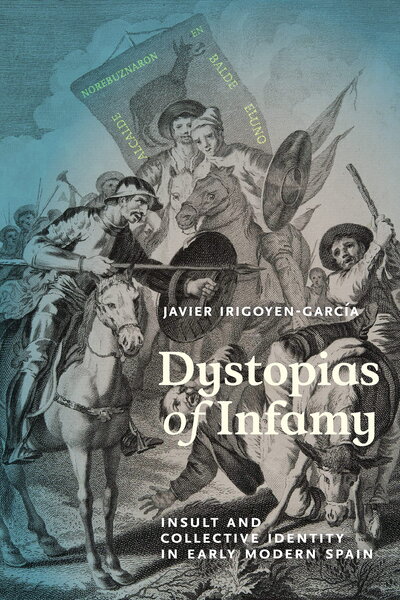
Insults, scorn, and verbal abuse—frequently deployed to affirm the social identity of the insulter—are destined to fail when that language is appropriated and embraced by the maligned group. In such circumstances, slander may instead empower and reinforce the collective identity of those perceived to be a threat to an idealized society. In "Dystopias of Infamy: Insult and Collective Identity in Early Modern Spain," professor of Spanish and Portuguese Javier Irigoyen García examines how the discourse and practices of insult and infamy shaped the cultural imagination, anxieties, and fantasies of early modern Spain. (Bucknell University Press, July 2022)
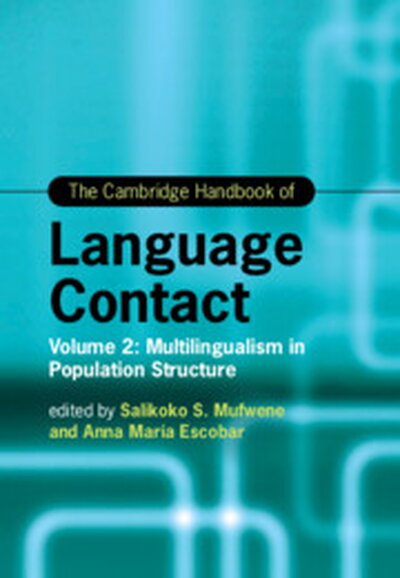
Language contact starts with the emergence of multilingual populations. Multilingualism involving plurilingualism can have various consequences beyond borrowing, interference, and code-mixing and code-switching, including language endangerment and loss. Bringing together contributions from an international team of scholars, The Cambridge Handbook of Language Contact Volume 2: Multilingualism in Population Structure—the second in a two-volume set edited by Spanish and Portuguese professor Anna Maria Escobar and University of Chicago professor Salikoko Mufwene—engages the reader with the manifold aspects of multilingualism and provides state-of-the-art research on the impact of population structure on language contact. (Cambridge University Press, June 2022)
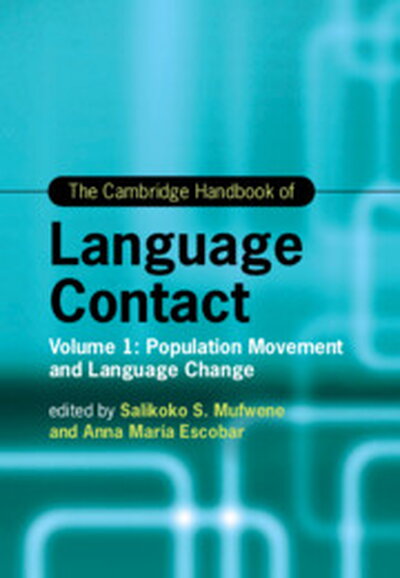
Language contact—the linguistic and social outcomes of two or more languages coming into contact with each other—has been pervasive in human history. However, where histories of language contact are comparable, experiences of migrant populations have been only similar, not identical. Given this, how does language contact work? With contributions from an international team of scholars, The Cambridge Handbook of Language Contact Volume 1: Population Movement and Language Change—the first in a two-volume set edited by Spanish and Portuguese professor Anna Maria Escobar and University of Chicago professor Salikoko Mufwene—delves into this question from multiple perspectives and provides state-of-the-art research on population movement and language contact and change. (Cambridge University Press, June 2022)
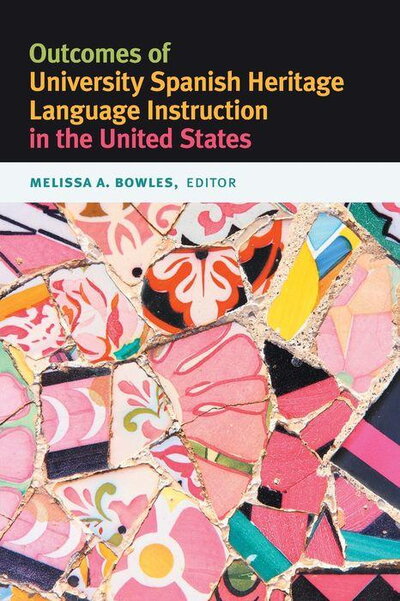
"Outcomes of University Spanish Heritage Language Instruction in the United States," edited by Melissa Bowles, professor of Spanish and Portuguese, is a volume exploring the effectiveness of instructional methods for college-level Spanish heritage learners. The first of its kind, this volume addresses how receiving heritage classroom instruction affects Spanish speakers on multiple levels, including linguistic, affective, attitudinal, social, and academic outcomes. Examining outcomes of instruction in Spanish provides insights that can be applied to instruction in other heritage languages. (Georgetown University Press, April 2022)
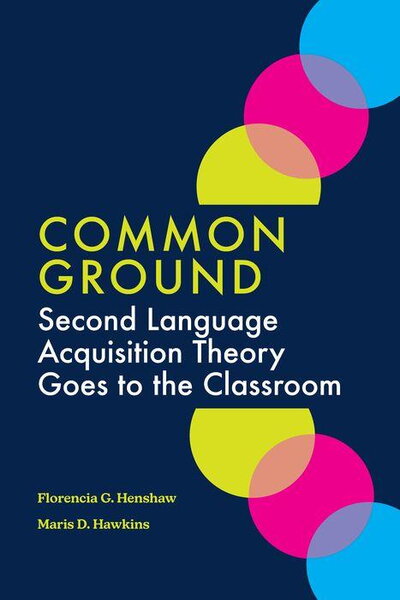
"Common Ground: Second Language Acquisition Theory Goes to the Classroom" by Florencia Henshaw, director of advanced Spanish, and Maris Hawkins, offers language teachers concrete examples of how second language acquisition (SLA) principles meet the realities of the classroom. Reviewers say "Common Ground" is accessible to teachers at all levels yet firmly rooted in current questions of SLA. (Focus, an imprint of Hackett Publishing, April 2022)
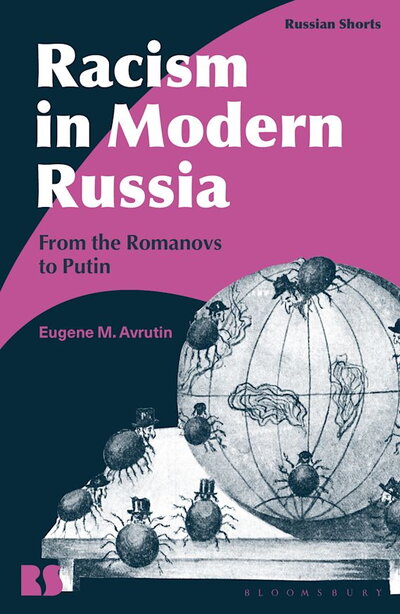
"Racism in Modern Russia: From the Romanovs to Putin" by Eugene Avrutin, history professor and Slavic Languages & Literatures affiliate, examines the developing scientific and popular discourses on race in Russia and the associated prejudice, discrimination, and violence. Analyzing a wide range of sources, it marks the first serious attempt to understand the history of racism in Russia over a span of 150 years. (Bloomsburg, March 2022)
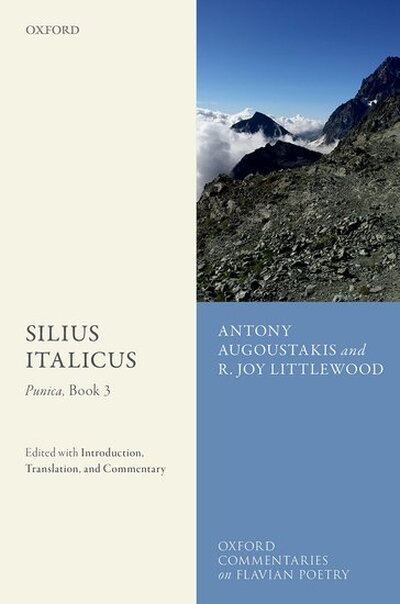
"Silius Italicus: Punica, Book 3" by classics professor Antony Augoustakis and R. Joy Littlewood, offers up-to-date English commentary on Book 3 of the Punica. It combines historical and philological approaches with material culture to illuminate Silius’ reimagining of Hannibal’s crossing the Alps and provides an introduction to the current state of scholarship on the poem. The Latin text is presented alongside an English translation and supplemented with maps and images to support understanding of the broad historical context of Silius' poem. (Oxford University Press, March 2022)
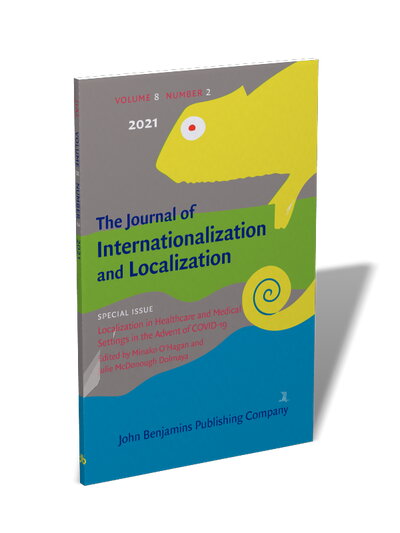
"Localizing a Covid phone app: A university class experience" by Kara Warburton, professor of Translation & Interpreting Studies, and Kamya Krishnan (MA '21, translation & interpreting studies) describes how Safer Illinois, a COVID-19 phone app, was localized by students of the MA program in translation and interpreting. The article, which was published in The Journal of Internationalization and Localization, explains the unique challenges of the project, as well as how it offered the opportunity to experience a real-life localization project. (John Benjamins Publishing Company, March 2022)
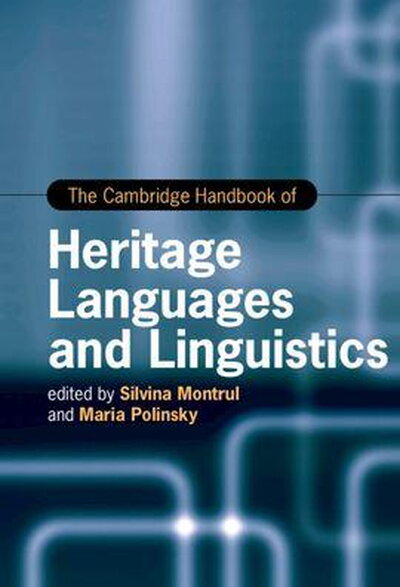
"The Cambridge Handbook of Heritage Languages and Linguistics," edited by Spanish and Portuguese and linguistics professor Silvina Montrul, together with Maria Polinsky, provides a state-of-the-art overview of the study of heritage languages from a number of different perspectives, ranging from theoretical linguistics to language education. Presenting comprehensive data on heritage languages from around the world, it covers issues ranging from individual aspects of heritage language knowledge to broader societal, educational, and policy concerns in local, global and international contexts. (Cambridge University Press, February 2022)
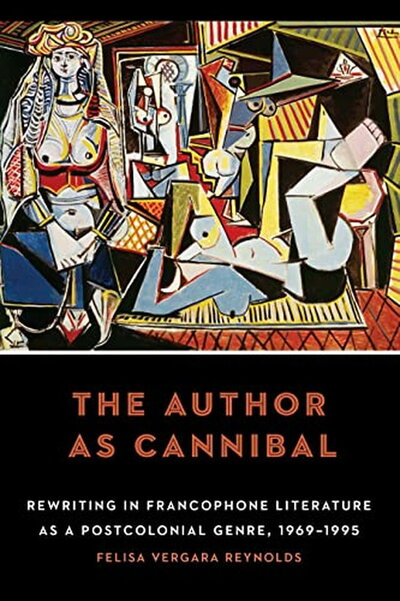
In the first decades after the end of French rule, Francophone authors engaged in an exercise of rewriting narratives from the colonial literary canon. In "The Author as Cannibal: Rewriting in Francophone Literature as a Postcolonial Genre, 1969–1995" by Felisa Vergara Reynolds, professor of French and Italian, presents these textual revisions as figurative acts of cannibalism and examines how these literary cannibalizations critique colonialism and its legacy in each author’s homeland. (University of Nebraska Press, January 2022)
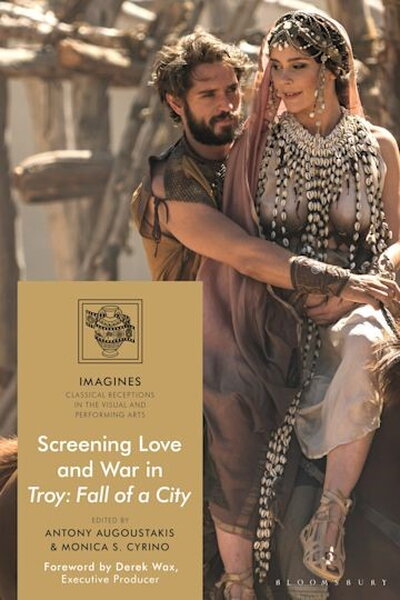
"Screening Love and War in Troy: Fall of a City" edited by Anthony Augoustakis, professor of classics, is the first volume of essays published on the 2018 BBC One and Netflix television series Troy: Fall of a City. Covering a wide range of engaging topics, such as gender, race and politics, international scholars in the fields of classics, history, and film studies discuss how the story of Troy has been recreated on screen to suit the expectations of modern audiences. The series is commended for the thought-provoking way it handles important issues arising from the Trojan War narrative that continue to impact our society today. (Bloomsbury, January 2022)
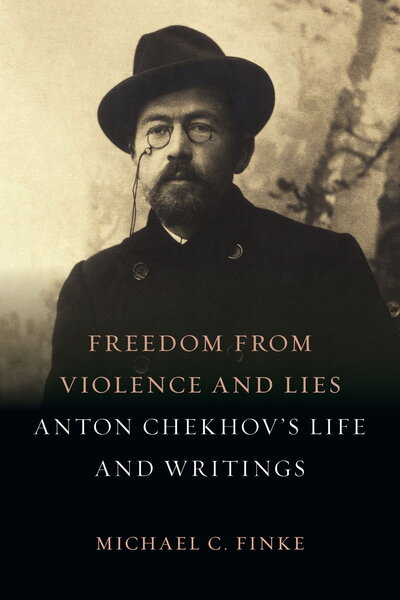
"Freedom from Violence and Lies: Anton Chekhov’s Life and Writings" by Michael Finke, professor emeritus of Slavic Languages & Literatures, is an introduction to the life and work of one of the greatest writers of short fiction in history. In this biography, Finke analyzes Chekhov’s major stories, plays, and nonfiction in the context of his life, both fleshing out the key features of Chekhov’s poetics of prose and drama and revealing key continuities across genres, as well as between his lesser-studied early writings and the later works. (Reaktion Books, November 2021)
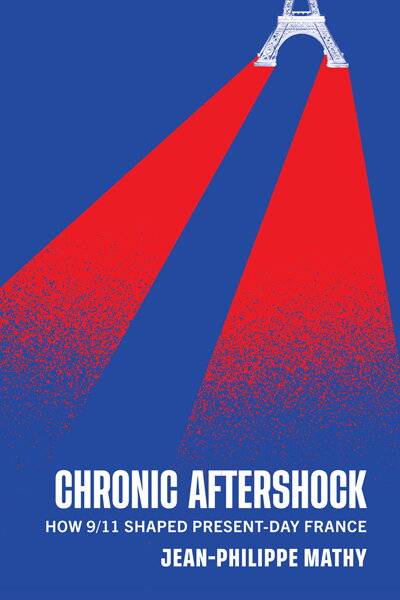
Documented through the reactions of various groups, including prominent politicians, journalists, and sociologists, “Chronic Aftershock: How 9/11 Shaped Present-Day France” by professor emeritus Jean-Philippe Mathy offers many valuable insights into the repercussions of 9/11 around the world and its profound impact on France. His comprehensive account addresses the rise of a small but influential group of self-described "anti-anti-Americans" who shared the views of American neoconservatives in support of regime change in Iraq, the widespread "I am Charlie" movement following the attacks against the offices of Charlie Hebdo, and more (McGill-Queen’s University Press, October 2021)
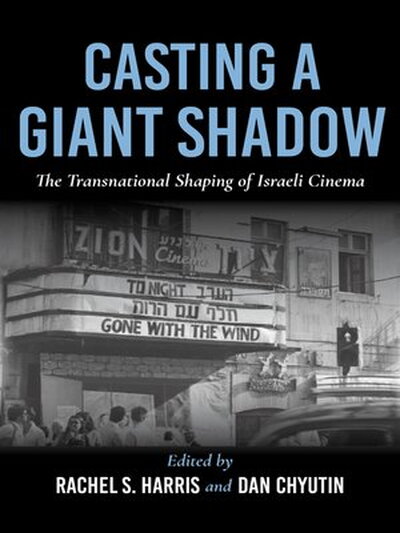
"Casting a Giant Shadow," edited by Rachel S. Harris, professor of comparative and world literature, and Dan Chyutin, is a collection of articles that embraces the notion of transnationalism to consider the limits of what is “Israeli” within Israeli cinema. It offers a new understanding of how cinema has operated artistically and structurally in terms of funding, distribution, and reception. This volume uses the idea of transnationalism to challenge the concept of a singular definition of Israeli cinema. (Indiana University Press, July 2021)
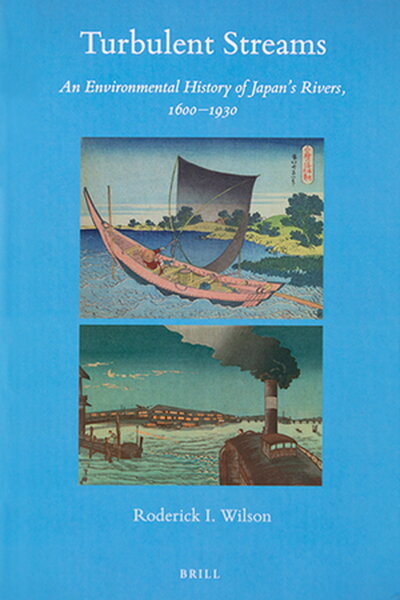
"Turbulent Streams: An Environmental History of Japan’s Rivers, 1600–1930," by Roderick Wilson, professor of history and East Asian languages and cultures and linguistics, describes how the rivers of Japan are both hydrologically and historically dynamic. Neither a story of technological progress nor environmental decline, this history introduces the concept of environmental relations as a category of historical analysis both to explore these fluvial interactions and reveal under-appreciated dimensions of Japanese history. (Brill, June 2021)
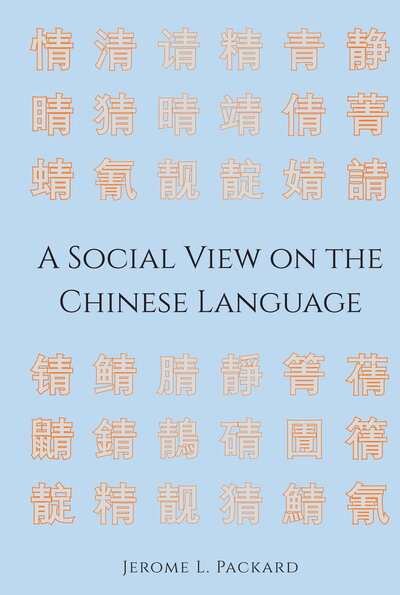
"A Social View on the Chinese Language," by Jerome Packard, professor emeritus of East Asian languages and cultures and linguistics, is intended to be a linguistic introduction to the Chinese language for the general reader and can be used in beginning-level Chinese linguistics courses. It is different from other Chinese linguistics surveys because it offers a view into linguistic phenomena that are also related to human behavior and society. (Peter Lang International Publishers, May 2021)
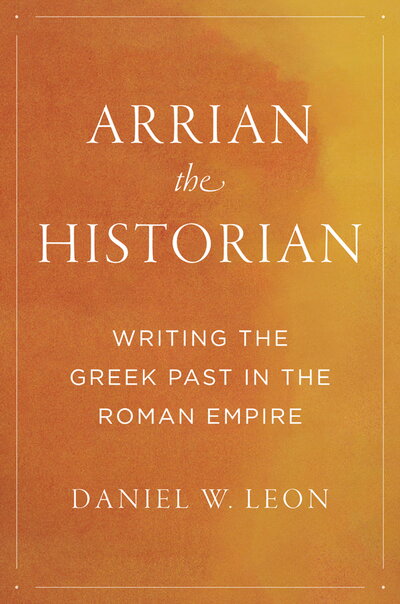
"Arrian the Historian: Writing the Greek Past in the Roman Empire," by Daniel Leon, classics, examines the works of Arrian of Nicomedia to show how Roman Empire-era Greek historians responded to their sophistic peers’ claims of authority and played a crucial role in theorizing the past at a time when knowledge of history was central to defining Greek cultural identity. (University of Texas Press, April 2021)
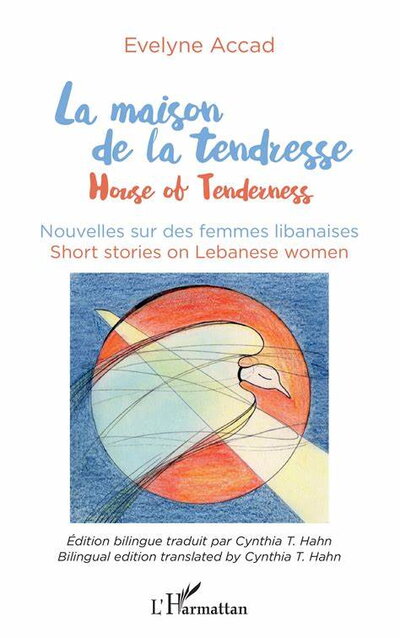
"La maison de la tendresse: nouvelles sur des femmes libanaises" or "House of tenderness: short stories on Lebanese women" by Evelyne Accad, professor emerita of French and Italian, consists of five short stories in bilingual format. These stories, which recount various forms of violence experienced by women in Lebanon, may be seen as portraits of women seeking to overcome obstacles and rebuild themselves. The characters here seek assistance in the form of tenderness, which may lead them to understanding and reconstructing the inner house of the self. (L'Harmattan, April 2021)

"The Corporate Terminologist," by Kara Warburton, lecturer in translation and interpreting studies, is the first monograph that addresses the principles and methods for managing terminology in content production environments that are both demanding and multilingual, such as those found in global companies and institutions. It describes the needs of large corporations and how those needs demand a new, pragmatic approach to terminology management. (John Benjamins Publishing Company, March 2021)
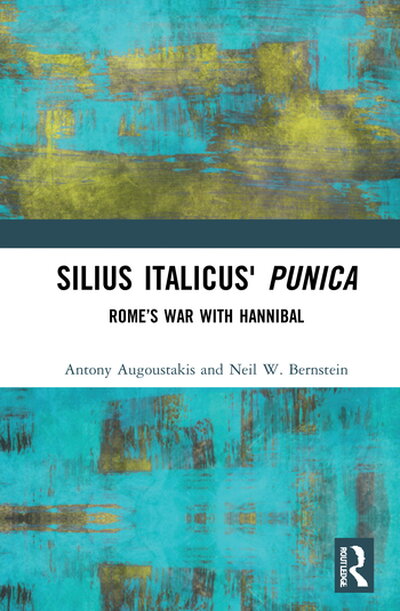
Composed in the first century CE, "Silius Italicus’ Punica: Rome’s War with Hannibal," translated by Antony Augoustakis, professor of classics, and Neil Bernstein, tells the story of the Second Punic War between Rome and Hannibal’s Carthage (218-202 BCE). It is not only a crucial text for students of Flavian literature, but also an important source for anyone studying early Imperial perspectives on the Roman Republic. (Routledge, March 2021)
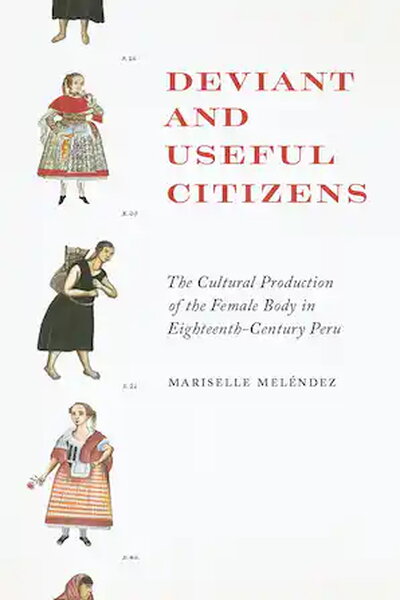
"Deviant and Useful Citizens," by Mariselle Meléndez, professor of Spanish and Portuguese, explores the conditions of women and perceptions of the female body in the eighteenth century throughout the Viceroyalty of Peru. Meléndez introduces the reader to a female rebel, Micaela Bastidas, whose brutal punishment became a particularly harsh example of state response to women who challenged the system. (Vanderbilt University Press, February 2021)